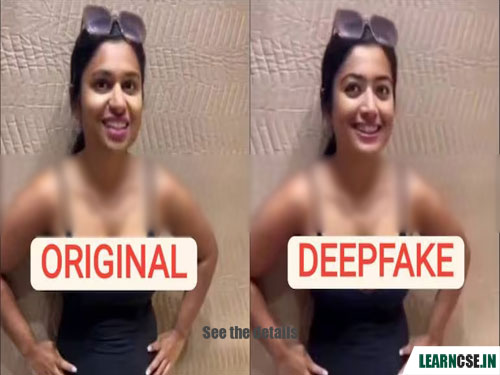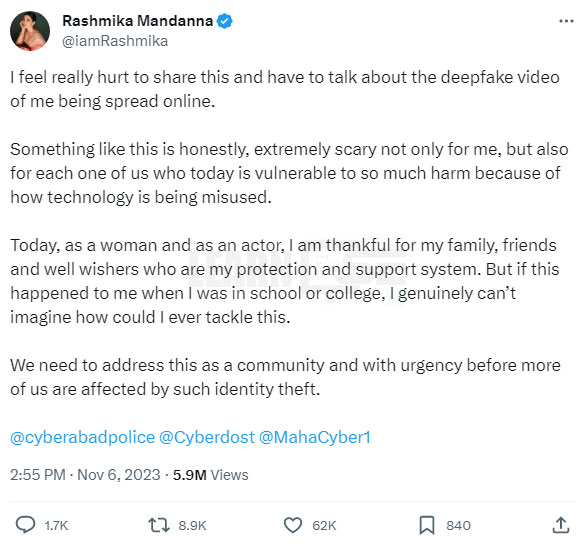Rashmika Mandanna took to her social media platform to address a deeply unsettling incident. She bravely opened up about the distressing experience of a deepfake video circulating online, expressing her concern not just for herself but for everyone vulnerable to such technological misuse.

In her post, Rashmika highlighted the genuine fear that comes with such violations, emphasizing the collective need to address these issues urgently. She acknowledged the support of her family, friends, and well-wishers, recognizing them as her pillars of strength. The actress emphasized that while she is fortunate to have a support system, others may not be as resilient, especially those who are still in school or college.

Following her revelation, both the government and Meta took swift action. New rules were defined to combat the rising threat of deepfake technology and to protect individuals from identity theft. The incident spurred a communal call to action, emphasizing the importance of solidarity in facing the challenges posed by the misuse of technology. Rashmika’s courage in sharing her experience became a catalyst for change, prompting a united effort to safeguard the digital well-being of the community.
What are Deepfakes?
Deepfakes are AI-generated content, often videos, that use machine learning to replace or superimpose someone’s likeness onto another’s, creating realistic but fake footage.
Law Against Deepfakes in India
As per the 66 D of Information Technology Act, 2000, punishment for cheating by personation by using computer resource can lead to imprisonment of up to three years and fine up to Rs. 1 lakh.
Read here: The Information Technology (IT) Act, 2000
Meta’s Deepfakes New Rules will be Applicable on Social Media
Meta is rolling out new regulations on deepfakes, effective January 1 of the upcoming year. These rules extend to both deepfake videos and manipulated images. Notably, any alterations made to videos and pictures must now be disclosed in accordance with Meta’s updated guidelines.
Starting year 2024, Meta’s new rules cover digitally altered content on Instagram related to social issues, elections, or political ads. Advertisers must reveal if a photo or video shows someone saying/dong something they didn’t or if it features a non-existent person or event. The move follows a fake video incident involving Rashmika Mandanna, with penalties for non-disclosure. Details will be visible in the ad library, and non-compliance may lead to ad rejection and penalties.

